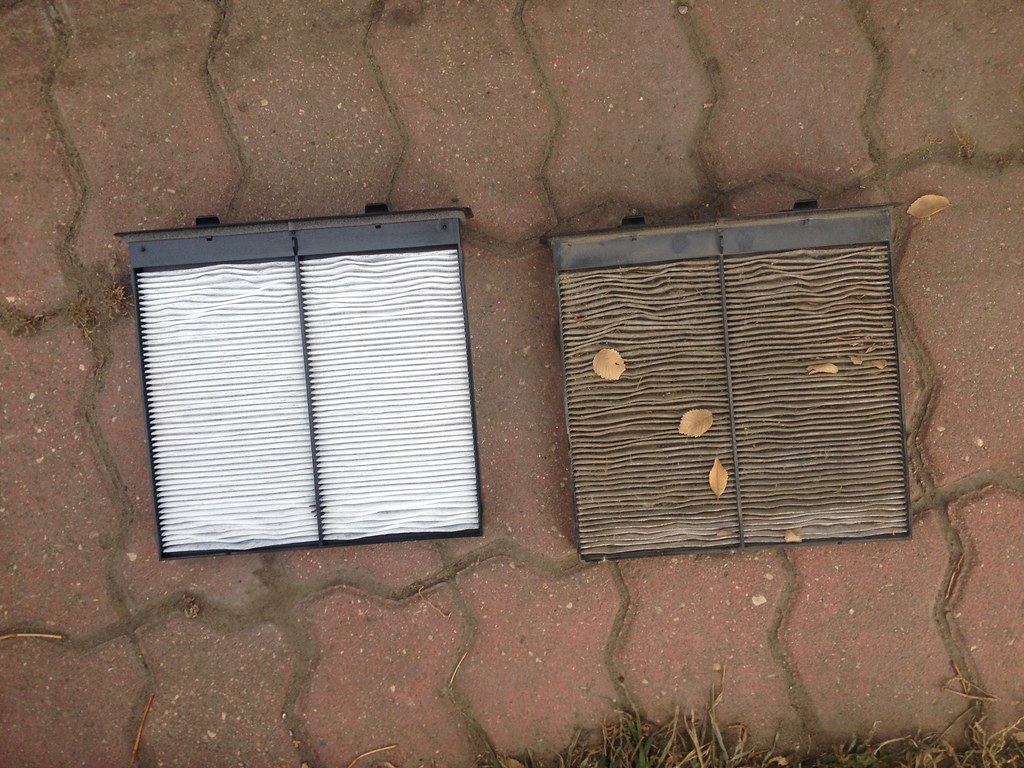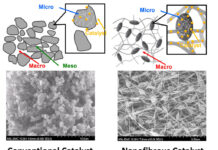An engine’s need for oxygen is similar to a person’s, as oxygen controls how much gasoline the engine can burn to produce power. And oxygen is found everywhere in the ambient air. To prevent dirt, pollen, and other contaminants from reaching the engine’s sensitive internals, the air must be cleaned before it enters. Cars come equipped with many filters to prevent contaminants from entering the fuel, oil, and air systems, such as carburetor air filters, cabin air filters, crank base breather filters, ABS/brake filters, and power steering, fuel tank filters, and transmission filters.
The engine air filter and the cabin air filter are the two basic air filters in automobiles. By cleaning the air and preventing impurities from entering it, the engine uses the air for combustion. Within a sealed box, the air is cleaned and used for combustion. Before entering the engine, the air is filtered to remove contaminants. In many vehicles today, there is a cabin air filter as well. Pollen and dust particles are filtered out of a vehicle through this second air filter installed in the air ducts as they enter through its heating, air conditioning, and defrosting systems. Despite these similarities, each air filter serves a slightly different purpose.
How does an air filter work?
The air filter, also known as an internal combustion air filter, filters the air before it enters the engine during combustion, preventing impurities from being delivered to the engine. Engine components are directly or indirectly protected from daily wear and tear by air filters. To prevent pollutants and contaminants from damaging your engine, they are your first line of defense.
In addition to reducing emissions and improving vehicle performance, air filters protect delicate engine systems against bugs, dirt, debris, and contaminants. Keeping a car’s engine operating at its best requires preventing larger particles from entering the intake system and letting in only sterile air. To ensure that your vehicle is in good working order, it is always recommended to change the air filter periodically to keep it in good condition. Dirty air can reduce engine performance and cause damage to the engine.
Cabin air filters
In addition to the cabin air filter, a cabin air filter is used on the duct system to reduce the amount of pollen and dust entering the cab. Filters installed in a vehicle’s cabin prevent dirt, pollen, bugs, and other contaminants from entering the vehicle through its heater, air conditioner, and defrosting systems. Some vehicles have the air filter installed inside the HVAC case between the blower motor and evaporator core.
In contrast, others have the air filter located behind the glove compartment, under the dash, or the hood. Pollens and other impurities are drawn into a vehicle through the fresh air intake system as it travels down the road or sits in traffic, even when the blower motor is not active. HVAC systems are adversely affected as a result. It prevents airborne allergens from entering the vehicle’s ventilation system and prevents other pollutants from getting into the vehicle.
How to know when to replace your cabin filters?
It depends on your driving habits and the year, makes, and model of your car for air filter replacements. If the air quality inside your vehicle begins to change, though it can be subtle and difficult to notice, you may begin to notice a change. This filter usually needs to be replaced every 20,000-30,000 miles. You can find a more precise estimate by consulting your owner’s manual or asking your local mechanic. Those with allergies, breathing sensitivities, exposure to pollen in their area, or who live in cities with excessive smog may need to replace their cabin air filters more frequently.
A comparison of air filters and cabin filters
Located
Under the hood, the air filter is located inside a sealed box in the engine bay and is one of the engine’s most important components. A dirty engine will negatively impact the vehicle’s performance and have a short life expectancy. The quality of air that enters the engine determines the engine’s life expectancy. On the other hand, cabin air filters usually find their place behind the glove compartment, under the dash, or the hood. At the same time, some vehicles have their air filters in the HVAC case, between the blower motor and evaporator core.
Purpose
The primary purpose of air filters is to clean the air and prevent impurities from entering the combustion chamber during the engine’s combustion process. Air filters prevent larger particles from interfering with the engine intake to keep the vehicle operating at its best. Cabin air filters are designed to prevent dust, pollen, and other contaminants from inhaled by vehicles through their heating, air conditioning, and defrosting systems. In other words, air filters prevent dirty air from entering engines, while cabin air filters prevent it from entering cabins.
Read More: What Are Metal Panels? Everything You Need To Know About Metal Panels For Walls
Replacement of local car filters
The experts at Chapel Hill Tire can help you with any vehicle service, whether you need an engine filter or a cabin filter. Each time you get an oil change from Chapel Hill Tire, our mechanics will perform a free air filter check to keep you informed about when a replacement is necessary. For a free consultation, please stop by any of our eight Raleigh-area offices, including Durham, Chapel Hill, and Carrboro!
AC impacted by cabin air filter?
Unbelievably, the air conditioning system may be impacted by your cabin filter, and the air conditioning system may significantly affect the car’s total power. If your filter is clogged, you might need to turn up the air conditioning. The burden on your AC and the engine both rise.
Apart from this, if you are interested to know more about Generator Installation Costs then visit our Home Improvement category.




